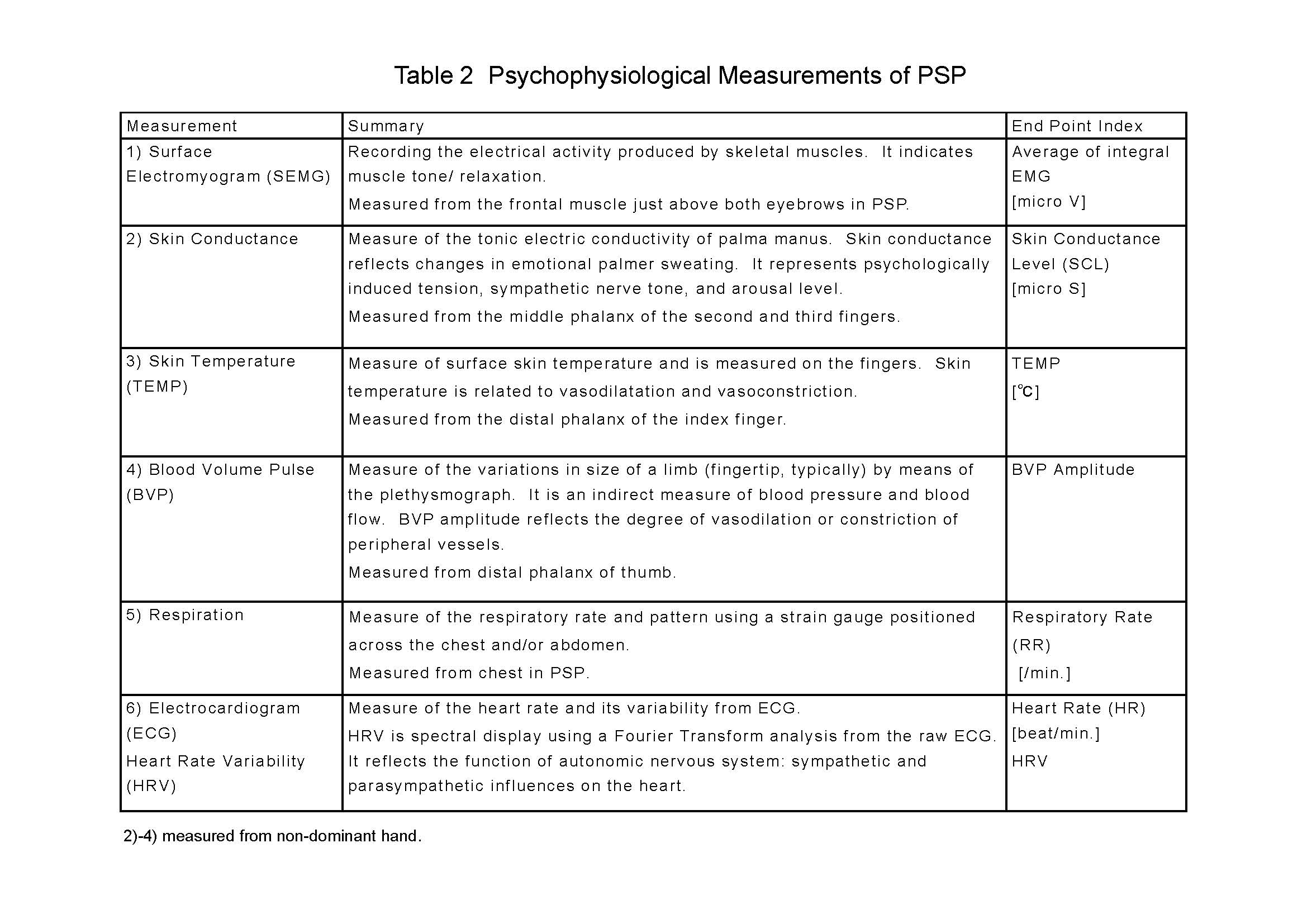Somatic symptoms of medically unknown origin are highly prevalent in the community and clinical settings. Functional somatic syndrome (FSS) refers to several related syndromes that are characterized more by symptoms, suffering, and disability than by demonstrable abnormalities. Two aspects should be considered in the underlying pathophysiology of FSS: dysregulation of the stress response in autonomic nervous systems and psychological factors that modulate the expression of symptoms.
Psychophysiological Stress Profiling (PSP) is a method of estimating the response to a stress by measuring multiple physiological parameters and psychological indices.
Physiological indices were hypo-reactive to mental work stress and psychological tension was high in the FSS compared with controls. These findings suggest FSS patients have hypo-functional stress responses, and couldn't cope with the stress properly.
